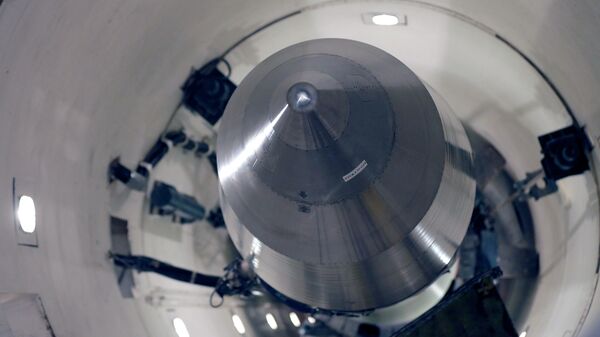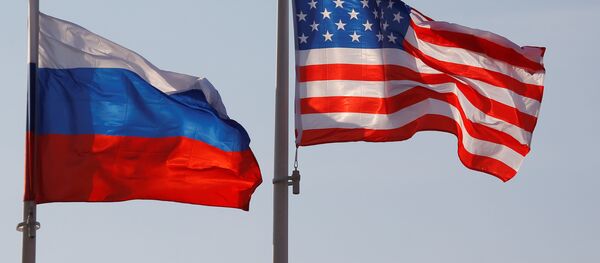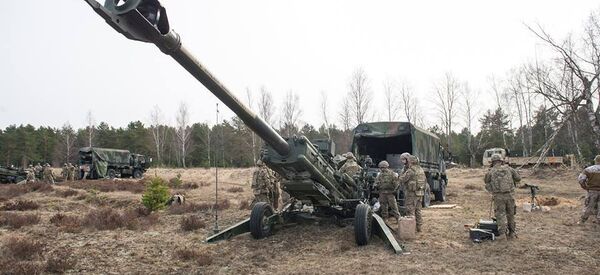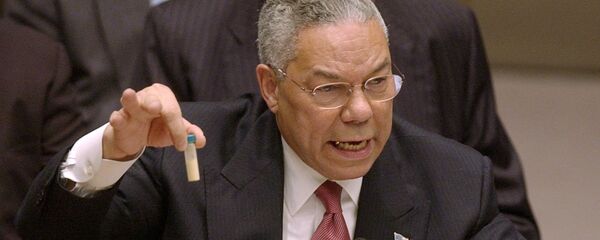According to a recent poll by the Russian Public Opinion Research Center (VCIOM), the country's oldest and most respected polling agency, 30% of Russians believe that a war between Russia, the US and its NATO allies is either "very likely" or even "already underway."
Another 47% of respondents answered that such a war was "very unlikely," with 16% saying it was "absolutely inconceivable."
The figures mark a significant shift from polling conducted in March 2014, when only 20% of Russians had said that a war with the West was either 'very likely' or 'already underway'. In the 2014 poll, 76% of respondents said that war was either 'very unlikely' or 'absolutely inconceivable.' This month's polling shows that this sentiment has now slid down to 63%.
In the April 2017 poll, just 9% of respondents said that Russian-US relations were 'normal', down from 17% in March. 42% characterized relations as 'tense', up from 33% in March. 12% categorized them as 'hostile', up from 8% in March. 28% characterized them as cool, down from 30% in March. 5% characterized them as either 'friendly' or 'good neighborly', down from 9% in March.
VCIOM conducted its polling between April 11 and 12, interviewing 1,200 respondents via telephone in regions across Russia. The poll's margin of error does not exceed 3.5%.
Asked to comment on these results and their implications, independent political analyst Igor Nikolaichuk told Radio Sputnik that such alarmist sentiments are not unique to Russia, and are manifesting themselves throughout the world.
"Many similar surveys suggest unequivocally that public consciousness has approached a sort of 'horizon of war'," the analyst noted. "The idea that a war may soon begin is being thought about not just in Russia, but also in NATO countries and even in countries like Sweden. At the same time, not everyone can imagine clearly what kind of war to await."
"These alarmist moods are manifesting themselves all around the world," Nikolaichuk stressed. "The most important factor leading to this result is what we call an 'information war' – the exaggerated activity of the media, which whips up these moods. I think that the propaganda that is created in the framework of an information war has already become a strategic weapon," the analyst concluded.
For his part, independent geopolitical analyst Anatoly Baranov suggested that it's actually very difficult to judge just how justified the public's fears are, for several important reasons.
"As a military analyst, assessing the numbers and condition of accumulated armaments, and the state of mobilizational readiness of the military industry of both sides, the preparation of reserves, etc., I would say that the answer is: no. No one [in the world] is categorically prepared to wage a big war," Baranov explained.
"Finally, as an economic analyst, I think it's worth recalling that world wars are classically seen as the way out of a global economic crisis," he warned.
Political scientist Igor Shatrov suggested that figure of 30% of Russians fearing war with the US was a disturbingly high one during peacetime. "This is a lot, and is a sign of Russians' distrust toward the United States. It's the result of the bellicose rhetoric that's now coming from the lips of US politicians. It's also a consequence of a lack of understand of Trump's position with respect to Russia, and the saber-rattling of US weapons which we have seen in recent weeks," the observer said.
Shatrov noted that that the recent US cruise missile attack on Syria "had a very significant role in 'adjusting' Russians' opinions." After all, whereas President Barack Obama had "distinguished himself by attempts at economic and political pressure on Russia, Donald Trump has begun to flex his military muscles, demonstrating US power in the areas where the interests of our two countries collide directly."
As far as ordinary Americans are concerned, Shatrov suggested that for most, Russia is neither a friend nor an outright foe. "That's about all that Americans, who are mostly interested in domestic politics, know about Russia. The almost complete lack of economic ties is also not conducive to a rapprochement of our peoples. At the same time, taking account of public opinion in determining foreign policy is necessary only if steps in the international arena directly affect internal politics."
Ultimately, the analyst said that as far as Washington is concerned, so long as the cool relations with Moscow do not affect the interests of ordinary Americans, the White House will not have to worry about serious domestic pressures to change course. "But it's another story as far as Europe is concerned, since European countries have broad economic ties with Russia. The US will have to take the interests of its allies into account," Shatrov concluded.





